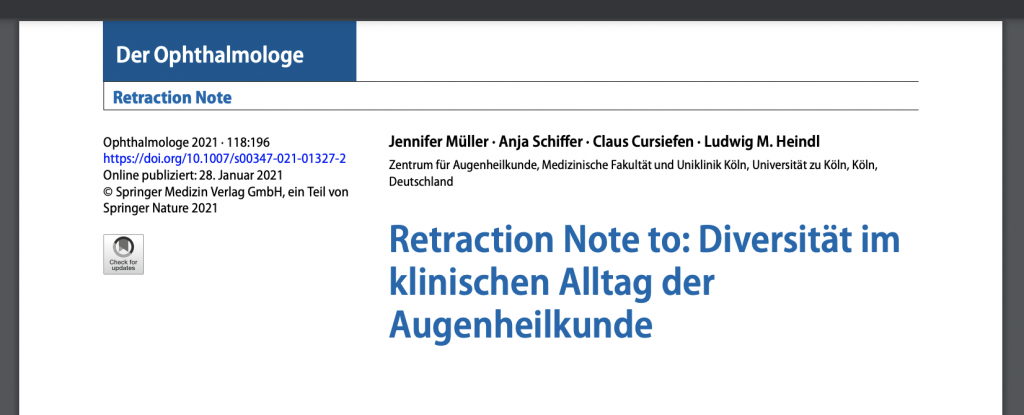
A paper about medical treatment for migrant patients in Germany has been retracted after the authors made unsupported claims that Muslims are “particularly sensitive” to pain.
The paper, titled “Diversität im klinischen Alltag der Augenheilkunde,” or “Diversity in everyday clinical practice in ophthalmology,” in English, was published in Der Ophthalmologe, a German medical journal, in November 2019. It has not yet been cited, according to Clarivate Analytics’ Web of Science.
The original article, penned by ophthalmologists at the Cologne University Eye Clinic, is in German. We ran it through Google Translate to get a sense of its content. The paper begins with a case study of a 52 year-old Turkish migrant, explains how to use smartphone speech translators to overcome language barriers, and highlights cultural differences that physicians should consider while treating migrants.
Continue reading Paper claiming Muslim patients are “particularly sensitive” retracted


 Here’s a head-scratcher: A 2017 paper examining why long space flights can cause eye damage has been taken down, with a brief note saying NASA, which sponsored the research, asked for the retraction because of “security concerns.”
Here’s a head-scratcher: A 2017 paper examining why long space flights can cause eye damage has been taken down, with a brief note saying NASA, which sponsored the research, asked for the retraction because of “security concerns.”



